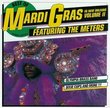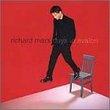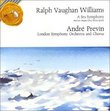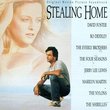| All Artists: Johann Sebastian Bach, Helmuth Rilling, Stuttgart Bach Collegium, Christiane Oelze, Michael Schade Title: Bach: St. Matthew Passion Members Wishing: 1 Total Copies: 1 Label: Hanssler Classics Original Release Date: 1/1/2000 Re-Release Date: 2/29/2000 Genre: Classical Styles: Opera & Classical Vocal, Chamber Music, Historical Periods, Baroque (c.1600-1750), Classical (c.1770-1830), Sacred & Religious Number of Discs: 3 SwapaCD Credits: 3 UPCs: 040888207429, 4010276015741 |
Search - Johann Sebastian Bach, Helmuth Rilling, Stuttgart Bach Collegium :: Bach: St. Matthew Passion
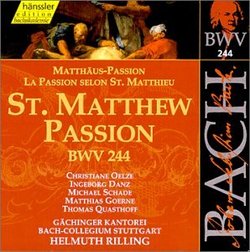 | Johann Sebastian Bach, Helmuth Rilling, Stuttgart Bach Collegium Bach: St. Matthew Passion Genre: Classical
![header=[] body=[This CD is available to be requested as disc only.]](/images/attributes/disc.png?v=430e6b0a) ![header=[] body=[This CD is unavailable to be requested with the disc and back insert at this time.]](/images/attributes/greyed_disc_back.png?v=430e6b0a) ![header=[] body=[This CD is available to be requested with the disc and front insert.]](/images/attributes/disc_front.png?v=430e6b0a) ![header=[] body=[This CD is unavailable to be requested with the disc, front and back inserts at this time.]](/images/attributes/greyed_disc_front_back.png?v=430e6b0a) |
Larger Image |
CD DetailsSimilar CDs
Similarly Requested CDs
|
CD ReviewsConsistently Satisfying 11/29/2001 (5 out of 5 stars) "This is clearly the best interpretation of Bach's piece yet. It more sensitively conducted than the wooden Gardiner recording. The two choruses and two orchestra are skillfully balanced. They play on modern instruments in period style-- that is some amazing skill. The mostly German-speaking Chorus and soloists sing with fluent diction. Professor Helmuth Rilling chooses his tempos wisely and the Evangelist recites his recitativos strongly and with a depth of drama. Whereas Gardiner's edition starts out strong but loses steam, Rilling's edition starts out strong from the very first note to the last. This is a very thorough recording and the scholarship and musicianship of the Concductor and the Ensembles make this evident. The Soloists are superb. The Evangelist (as I've said) is very dramatic, but the highlight of the recording, I believe, is the alto, Ingelborg Danz, a student of the great Dame Joan Sutherland. In this recording, Danz's rendition of such arias like "Buss und Reu" and "Ebarme Dich" set new standards. This recording (VOL 50 of the Edition Bach Akademie) is also offered at a fraction of the price of the other stuffy period-instrument recordings (with lesser sound quality) currently offered. It is indeed the best kept secret in the field, and it is indeed a wonder why it hasn't recieved the attention it deserves for it's performers' care and superior musicianship in this recording. I have much praise for this recording. FIVE STARS." Mixed style with wonderful solo work Larry VanDeSande | Mason, Michigan United States | 03/23/2005 (3 out of 5 stars) "Helmuth Rilling lives up to his reputation as a centrist Bach stylist in this recording of the monumental "St. Matthew Passion". With his typical partners, the Stuttgart Bach Collegium and Gachinger Cantorei and soloists Ingeborg Danz, Matthias Goerne, Christiane Oelze, Thomas Quasthoff and Michael Schade, Rilling delivers a performance of the religious opera that contains elements of both the romantic legend and period performance practice style now the rage in Bach performance. Even more than normal, Rilling remorselessly drills his choir to razor sharp singing, with perfect entries and closure at every chorus. The soloists -- notably Shade as the Evangelist and Goerne as Jesus -- sing with dramatic approach to the crucifixion story. The orchestral work is similarly well done with an occasional sour woodwind or blurry cello getting in the way of a singer. Goerne is more traditional in his role while Schade is dramatic at every turn. Soloists Danz, Oelze and Quastoff are all magnificent in their respective arias, with the younger Quastoff turning in more committed work than in his recent CD of Bach's baritone cantatas on DG. This is a good CD and powerful reading of the story about Christ's betrayal, conviction, aboslution, demise and resurrection. Compared to other performances of the music I've heard, it straddles the fence between the perdiod performers and traditional "modest maestros", as the American Record Guide overview called the older Bach specialists that subjugated their egos to the demands of the music. I generally like the performance and found some discomfort in Rilling's period moments. That probably says more about me than Rilling, since I prefer the modest maestro approach to the music with greater humanity and less drama in the singing. Regardless of direction or approach, there is no question that the singing in this version can stand up to most. Only the ultradramatic approach of Schade as Evangelist can be questioned, and nothing about his technique, vocalization or style is out of place. Goerne's famous chocolate bass-baritone is consistenly on display when Jesus speaks and he carries out the role as well as anyone. The soloists are all wonderful, to be frank, singing their hearts out to carry the message of this profound score. Rilling's approach -- tradtional while informed by period practice -- is perhaps too much of a compromise for many listeners, especially those that want a less dramatic approach. But, with top notch recorded sound and the additional aria & choral item (No. 17), this makes a compelling entry in the "St. Matthew Passion" sweepstakes. It may not carry the day for traditionalists that prefer Klemperer's great old version, and it may not speak to the period performance crowd the way Gardiner's version does, but it should be considered by anoyone else that wants to hear this music performed as high drama. " Greatest Version of the World's Greatest Musical Achievement world family | Los Angeles, CA USA | 10/25/2006 (5 out of 5 stars) "Bach's St. Matthew Passion is the greatest musical piece ever written and this is the greatest version of that piece. Bach and Rilling take you on a journey that travels through all 12 keys, and you feel you have arrived somewhere--changed--at the end.
Long ago, I helped write a book called Composing Music: A New Approach, and as it was about to go to press, the publisher called to say that they had spilled coffee on most of the examples (which they called the artwork, since they were all handwritten). So I went to the library and got Bach's St. Matthew Passion and played it over and over again while I was copying the music (once in awhile I would play the St. John Passion too). I would stop to meditate twice a day, and my head would be filled with tremendous light, which I attributed to the influence of this piece. I tried to find that version of the Passion, since so many versions wreck either the tremendous ending or the recurring chorales. I bought several versions and returned them. (I kept a few.) The one I had heard when I was copying was no longer availalbe, though I did find a cassette of it years later and it wasn't quite as good as I remembered. But the Rilling (Bach-Collegium Stuttgart/Hanssler edition) is the only version I listen to. It is tremendous--the singers, the tempo, the orchestra, the recording itself. It is interesting that composer Felix Mendelssohn discovered and presented the forgotten 1727-1736 piece in the 1800s, and helped the modern world discover Bach's works in general a hundred years after Bach wrote them, but I discovered the Passion even later, when I was in college. I had read a mystical book by Corrine Heline called "Color and Music in the New Age," where she noted that certain great works of music are helpful to the spiritual aspirant and are attuned to the energies of certain times of year (no matter what time of year they were written for). For example, she thought Handel's Messiah helps you attune to the energies and openings available in nature during spring, Schubert's Ave Maria is attuned to Winter, Mendelssohn's Midsummer Night's Dream music is good to listen to in summer, and Bach's Saint Matthew Passion is attuned to fall (among her other observations). This encouraged me to play these pieces more during those times. The fact that this piece and its double choir travels through all of the musical key signatures must help bring about these subtle affects. The piece evokes love, longing, grief, devotion, and upliftment, and Rilling's version allows you to feel all of those things. I especially like hearing the alto sing her long ach . . . (in context), and the feeling of having arrived with Sehet, Jesus hat die Hand near the end. I have heard the St. Matthew Passion hundreds of times, and it is worth following along with the words at least once. The words add an extra depth and dimension. (I haven't found the versions that use historical instruments satisfying.) I also helped edit the text for a course on music history once, and I listened to the music of the various eras that were being discussed as I edited. When Bach arrived, it was as if someone had appeared on Earth to jump-start music; to give people a vision of what was possible through this artform. The Saint Matthew Passion was his crowning achievement." |

 Track Listings (29) - Disc #1
Track Listings (29) - Disc #1
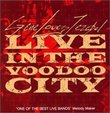
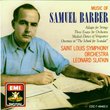
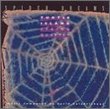
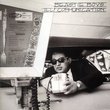
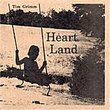
![Who You Are [Explicit][Revised]](https://nationalbookswap.com/cd//m/77/6477/13376477.jpg)
